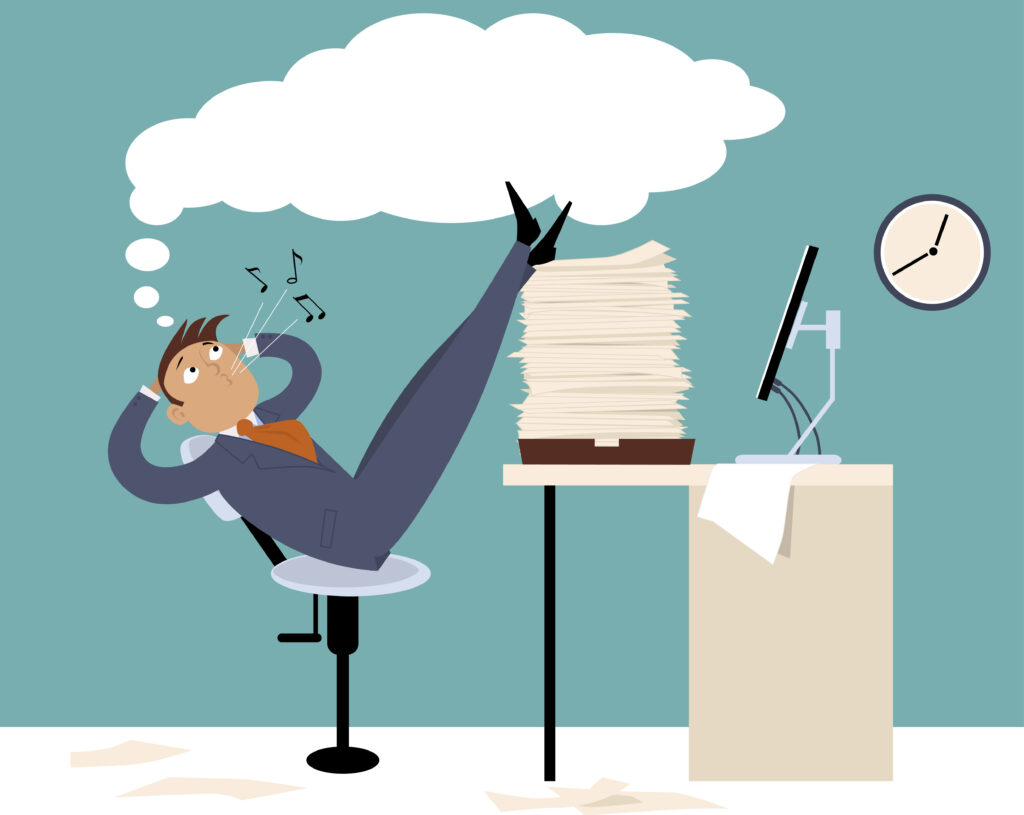Overcoming Procrastination: Tips to Turn Pending Tasks into Daily Achievements

Why It Hurts, and How to Overcome It
Understanding Procrastination: Causes, Consequences, and How to Break Free
Procrastination is a common habit that affects millions of people worldwide. It’s the tendency to delay or postpone tasks that need to be accomplished, often in favor of more enjoyable or easier activities. Though procrastination may seem harmless at first, it can create a cascade of negative effects on both personal and professional lives. If you’ve ever found yourself putting off important tasks until the last minute, or even feeling stuck and unproductive, you’re not alone. This article will help you understand what procrastination is, the negative impact it can have, and effective strategies to overcome it.
What is Procrastination?
Procrastination is the voluntary delay of important tasks, despite knowing there may be negative consequences. It often involves choosing short-term pleasure or avoiding discomfort rather than engaging with work or activities that require effort or focus. Procrastination isn’t a sign of laziness; it’s more complex, often tied to deeper emotions, habits, and even neurological responses.
Types of Procrastination
Understanding the types of procrastination can help us recognize why we put things off and what triggers this behavior.
- Avoidance Procrastination: Here, individuals avoid tasks that make them feel anxious, overwhelmed, or uncertain. The task is delayed to avoid negative emotions.
- Perfectionism-Driven Procrastination: Those who are perfectionists may procrastinate because they fear they won’t perform the task perfectly. The fear of failure or criticism can prevent them from starting or completing tasks.
- Decision-Making Procrastination: Some people delay tasks because they find it difficult to make decisions, often because of self-doubt or fear of making the wrong choice.

Why Do People Procrastinate?
There are several factors that contribute to procrastination:
- Fear of Failure: Many people procrastinate because they fear they won’t succeed, so they delay starting the task to avoid feelings of inadequacy.
- Low Motivation: When a task doesn’t feel rewarding or personally relevant, it’s easy to lose interest and put it off.
- Lack of Clarity or Planning: Without a clear plan or goal, it’s hard to stay focused. Many procrastinate simply because they don’t know where to start.
- Instant Gratification: People are often wired to seek immediate rewards, making it tempting to prioritize short-term satisfaction over long-term goals.
The Consequences of Procrastination
Procrastination may seem harmless in the short term, but its long-term effects can be significant. Chronic procrastination can impact various aspects of life, from mental health to career progress and personal relationships.
Mental Health Impact
Procrastination often leads to stress, guilt, and anxiety. The constant worry about unfinished tasks can become overwhelming, leading to feelings of inadequacy and even depression. Procrastination can cause a “guilt-stress cycle,” where procrastination leads to guilt, and guilt creates stress, which can then increase procrastination.
Reduced Productivity and Missed Opportunities
Chronic procrastination can lead to missed deadlines, decreased productivity, and lost opportunities. In a work environment, this may mean slower career progression, as delays can prevent people from meeting objectives or achieving their full potential.
Negative Effects on Personal Relationships
Procrastination doesn’t just impact work; it can also strain relationships. When someone frequently delays important responsibilities, it can lead to disappointment, frustration, or a lack of trust from loved ones.
How to Overcome Procrastination: Effective Strategies
While procrastination can feel overwhelming, breaking free from this habit is entirely possible with a few practical steps. Here are some proven strategies that can help:
1. Set Clear Goals and Deadlines
Break tasks down into small, manageable parts and set clear, achievable goals. Start with deadlines for each part, which will give you a roadmap to follow and reduce the sense of being overwhelmed.
2. Use the “5-Minute Rule”
Commit to working on the task for just five minutes. Often, just starting can help reduce the mental resistance to the task. After five minutes, you may find it easier to continue working.
3. Prioritize Tasks with the Eisenhower Matrix
The Eisenhower Matrix is a tool that helps you categorize tasks based on urgency and importance. This approach allows you to focus on what truly matters, minimizing distractions and low-priority tasks.
- Urgent and Important: Do these tasks immediately.
- Important but Not Urgent: Schedule time for these tasks.
- Urgent but Not Important: Delegate these tasks if possible.
- Not Urgent or Important: Minimize or eliminate these tasks.

Why it hurst
4. Practice Self-Compassion
People often procrastinate because they’re too hard on themselves. By practicing self-compassion, you can reduce the negative emotions tied to procrastination. Remind yourself that perfection isn’t necessary, and that taking small steps is a success.
5. Use Tools and Techniques to Stay Focused
Using productivity tools can keep you on track:
- Pomodoro Technique: This involves working for 25 minutes and then taking a 5-minute break. It helps improve focus and prevents burnout.
- Task Management Apps: Apps like Todoist, Trello, or Asana can organize tasks and set reminders, helping you stay focused on your goals.
- Time Blocking: Dedicate blocks of time to specific tasks. This creates a schedule and encourages you to focus on one thing at a time.
6. Visualize Success
Visualization is a powerful technique to reduce procrastination. Take a moment to imagine how completing a task will feel and the benefits it will bring. By focusing on the positive outcome, you can increase motivation and reduce resistance.
Breaking Procrastination Habits: Long-Term Solutions
Overcoming procrastination isn’t just about short-term strategies; it requires creating new, lasting habits that support productivity and focus.
Build a Routine
Developing a routine can help prevent procrastination by establishing consistency. Schedule your most important tasks at the same time every day to create a habit. Over time, this consistency will reduce the mental resistance associated with starting new tasks.
Seek Accountability
Accountability partners can help you stay on track. This could be a friend, colleague, or even a coach. By sharing your goals with someone, you create a sense of responsibility, making it harder to procrastinate.
Conclusion: Embrace Change and Defeat Procrastination
Procrastination is a common challenge, but with the right strategies, it is entirely possible to overcome. By understanding the causes of procrastination and implementing practical solutions, you can improve productivity, reduce stress, and achieve your goals more consistently. Remember, the first step is often the hardest, but with a little persistence and self-compassion, you can make procrastination a thing of the past.

FAQ – Frequently Asked Questions About Procrastination
1. Is procrastination a sign of laziness?
No, procrastination is not necessarily a sign of laziness. It is often a complex behavior tied to emotions, fear of failure, or even perfectionism. Many people who procrastinate still want to succeed but find it difficult to start or complete tasks.
2. Can procrastination lead to mental health issues?
Yes, chronic procrastination can contribute to mental health issues such as stress, anxiety, and even depression. The guilt and stress associated with unfinished tasks can create a negative mental cycle that impacts well-being.
3. What is the best way to overcome procrastination?
There is no one-size-fits-all answer, but effective strategies include setting clear goals, using tools like the Eisenhower Matrix, applying the Pomodoro Technique, and building a consistent routine. Experiment with these strategies to find what works best for you.
4. Can procrastination affect relationships?
Yes, procrastination can impact relationships. When responsibilities are delayed or neglected, it can lead to disappointment and frustration among family members, friends, or colleagues, potentially affecting trust and connection.
5. Is it possible to completely stop procrastinating?
While it may be difficult to eliminate procrastination entirely, you can reduce it significantly by understanding its causes and applying the strategies mentioned. With practice and self-awareness, procrastination can become less frequent and easier to manage.
By learning to manage procrastination, you’re not only improving your productivity but also creating a more fulfilling and less stressful life. Embrace the journey of self-improvement and take the first step today.
Procastination – Mindfulness for Beginners: Your Step-by-Step Guide to Daily Serenity – Mental health care – https://youtu.be/GvXBACCuKmg?si=NhLVLapeNiTnN1eb



